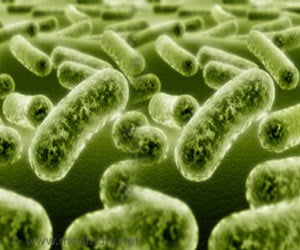Pathogens have been associated with transient antiphospholipid antibodies, so researchers looked for clues for the source of chronic stimulus of the antibodies.

Pathogens have been associated with transient antiphospholipid antibodies, so researchers at the Kriegel Lab at Yale University School of Medicine in New Haven, Conn., looked for clues for the source of chronic stimulus of these antibodies in the fecal matter bacteria of people with APS.
"Transient antiphospholipid antibodies have long been associated with infections, but are not considered disease-related," said Martin A. Kriegel, MD, PhD, Assistant Professor of Immunology and Medicine and the study's lead author. "We hypothesized that commensals (the microbes normally present in one's gut) that chronically colonize us, instead of acute infections that resolve over time, might be the persistent triggers of APS in patients."
APS' exact cause is still unknown. Blood thinners, the current treatment option, only target the blood clots that occur at the end phase of disease, said Dr. Kriegel. This study aimed to find earlier triggers for the disease to possibly prevent deadly strokes and miscarriages. "There's still significant mortality associated with this syndrome compared to other rheumatic diseases in which we can largely prevent mortality nowadays. So there is a huge need to better understand and treat this syndrome," he said.
The researchers collected and analyzed 60 stool samples of 22 APS patients, 13 samples of six control subjects with non-autoimmune, thrombophilic states, and 49 samples of 19 healthy donors, each at baseline, four and eight weeks. Peripheral blood mononuclear cells (PBMCs) from the APS patients responded preferentially to β2-glycoprotein I (GPI), a major auto-antigen in APS, compared to the controls. In addition, the fecal microbiomes of APS patients showed a significant decrease in Bilophilia bacteria and an increase in Slackia bacteria.
Fifty-nine percent of the APS patients, but none of the controls, were persistently positive for anti-domain I (DI) antibodies. Increased Slackia and decreased Butyricimonas, a genus of bacteria that produces butyrate, were also significantly correlated to anti-DI IgG positivity in the APS patients. Slackia can produce phospholipids, including cardiolipin, one of the target lipids in APS. The researchers speculated that cardiolipin derived from these gut bacteria could promote autoreactivity against the major B-cell epitope in β2GPI.
Advertisement
One day, doctors may be able to identify APS biomarkers in patients' fecal microbiomes. Dr. Kriegel's laboratory is currently testing functional links between these microbes and APS.
Advertisement
Source-Eurekalert















